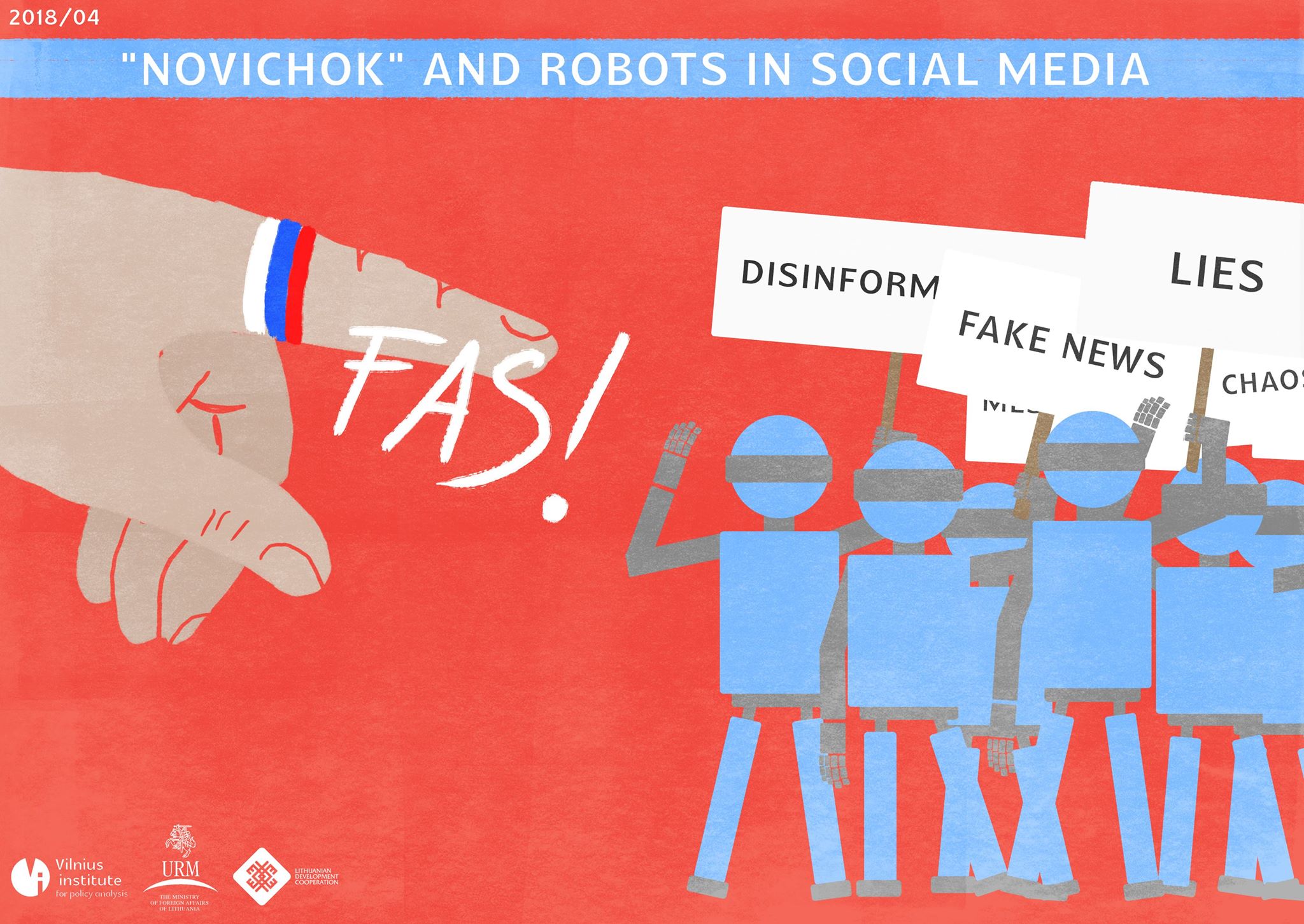Just after the attempt to poison the ex-double agent Sergei Skripal and his daughter with the nerve agent “Novichok” in the United Kingdom, automated accounts propagating Kremlin’s disinformation have become extremely active on social networks.
The Times informs about governmental reports which claim that just after the attack 2,800 such automated accounts were activated. These profiles have carried out 75 million actions altogether and have reached at least 7,5 million of the UK’s internet users.
All of this was done to provoke doubts about the United Kingdom government and the judicial system’s investigation into S. Skripal and his daughter’s poisoning. The goal was to undermine trust in the institutions and officials thoroughly investigating the case and to downgrade the credibility of the conclusions of the investigation.
Automated accounts can post hundreds of posts on social networks a day. By reposting and sharing each other’s posts they help spread the message important to Kremlin’s disinformation campaign.
The automated accounts were the most active during the first five days after S. Skripal’s poisoning. 44% of all posts were posted during this time. The automated accounts also actively commented on the UK media’s (The Times, BBC, The Guardian) posts on social networks related to S. Skripal’s case.
The researchers at Digital Forensic Research Lab have illustrated Russian trolls and automated accounts’ activity with one excellent example.

As could be suspected, a poll on whether the British government has enough data to prove Russia’s direct responsibility for using a chemical weapon was posted on a British Twitter profile under the name of @Rachel_Swindon on the 17th March. The resounding “NO” side had the most votes. This @Rachel_Swindon’s profile had 58 thousand followers and displayed an active support for the Conservative Party’s opponent: Labour Party. That 15 thousand followers voted in the poll should not be surprising having the number of followers in mind. What is surprising, nevertheless, is a completely different matter: the profiles which helped to spread the mentioned poll in the speed of light. Most of the profiles, which shared the link to the poll, were either Russian-speaking or constantly posting the content beneficial to Kremlin. This is a great reminder of the power the coordinated work of trolls and robots can gain. This is also a warning to critically assess the polls on social networks, which are often far from representative.
Read also:
- Five ways Russia is generating a conspiracy smokescreen around the Skripal poisoning
- Russian media have published 20 different narratives on Skripal poisoning
- Behind the smokescreen: who are the actors spreading disinformation on ex-Russian spy Skripal
- Putin has come out a winner in the Skripal Case, Kirillova says
- The bold assassination attempt on ex-Russian spy Sergey Skripal in Salisbury, England
- Moscow’s development of poisons like one used against Skripal has long history and dark shadows
- Three important lessons of the Skripal Case the West has yet to learn
- Also in Russia a Russian hand is seen behind the nerve-gas attack in Salisbury





